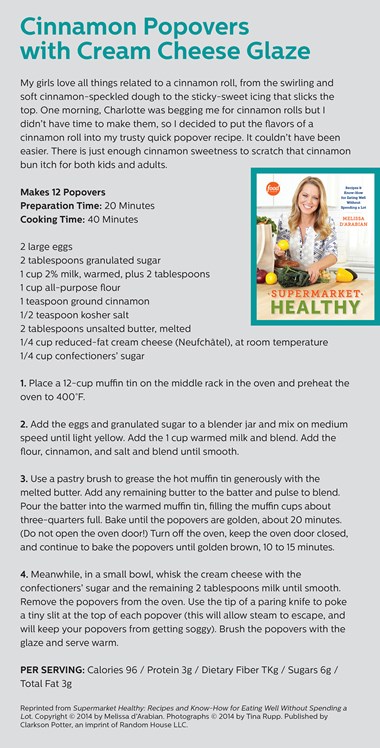A Healthier Year, Body and Soul

What is magical about January 1st that gives us renewed hope and energy to imagine visions, create missions, and sketch out new goals? For me, it’s the “New” in “New Year,” which reminds us to take a pulse on our lives and to evaluate how closely we are living the life we feel we are intended to live—the life God wants us to live.
It all sounds fantastic—spiritual even. So how does this moment to reflect on our lives turn into us being on diets, feeling frustrated, incomplete, not enough, and like failures? How does this natural chance to be renewed and refreshed in our life paths, laid out so generously by God, have the potential to make us feel deprived, listless, headachy, and . . . hungry?
Am I alone?
While eating healthy and taking care of our bodies are worthwhile pursuits, clearly this classic, white-knuckled, mean-and-lean approach to the January fitness trap many of us women fall into is missing something. (You think?) Where is God in how I watch my weight? How does Christ fit into my New Year’s fitness resolutions?
I’ll confess that if I could, I’d sleep in every day, never work out, and lounge around in stretchy pants that allow me to eat takeout Thai curry all day long. For me, staying in shape must be a deliberate commitment. But even when I have dieted and exercised, the minute I let myself take a break from the weight room, the soft flesh would creep back. Then I’d feel like I’d failed, and even if it was just a tiny bit, it was enough for the feeling of failure to take root and turn into stress and guilt. I am not proud to share it, but I have even struggled with hatred toward my body—I’ve felt my heart sink when I see too-thick arms in a photo and have cringed when I’ve felt an extra inch or two of my tummy fold over on itself. Why did my body stress me out so much?
About two years ago I had an experience that changed the way I think about my body. I was reading Philippians in my Bible study and came across chapter 4:6–7: “Don’t worry about anything; instead, pray about everything. Tell God what you need, and thank him for all he has done. Then you will experience God’s peace, which exceeds anything we can understand. His peace will guard your hearts and minds as you live in Christ Jesus.” I had read this verse before, but my heart raced as if I was reading it for the first time. Do not be anxious, about anything? Really? Could Paul mean it? Writing from prison, Paul had so much more than a little belly fat to worry about! Could it be that I was allowing the stress over my body to edge out Christ?
Paul’s letters are always a great place for me to re-center myself on the promises of God and root me in the pre-eminence of Christ, so I dove in deeper. In Paul’s letters, I found three keys to reclaiming my body for God’s intentions.

Love
Throughout the New Testament, I am reminded how deeply God loves me, and that we are called to love as Christ does (; ). I wrestled with the calling to be Christlike and to love as he does. I realized, with a deep sense of sadness, that I loved my body only when it looked a certain way. A love with such conditions is not love at all. My mind was blown: I didn’t love my own self? And then I read on: the Bible is clear that my body is actually part of Christ. Paul writes, “Don’t you realize that your bodies are actually parts of Christ? . . . Don’t you realize that your body is the temple of the Holy Spirit, who lives in you and was given to you by God? You do not belong to yourself, for God bought you with a high price. So you must honor God with your body” (). I thought I was just pitying myself for putting on a few pounds, but reading God’s Word made clear to me that the way in which I dieted and my attitudes toward my body were, ultimately, disrespecting God. My crummy attitude didn’t just impact me; it impacted him.
Gratitude
In Colossians, Paul writes about the fruit of the Spirit—patience, endurance, joy, and thanksgiving—and then swiftly explains in five short verses the supremacy of Christ that’s at the heart of Christian doctrine (). Despite Paul’s brevity and clear choice of words, many times when I’d this passage, I’d missed the point: God so loves us, that if I am receiving this love, my natural response should be one of tremendous gratitude. But if I was honest with myself, I wasn’t grateful about my body. The best way I could describe my attitude toward my body was a grumpy acceptance of the sub-par lot I felt I’d drawn. I often joked about certain features or flaws I think I have—harmless self-effacement, I thought. But Paul’s letters remind me all these tiny jabs are not directed at me; they are directed at God. Your handiwork is just not enough for me, I seem to be saying. Sarcastic, witty retorts are not a fruit of the Spirit, but thanksgiving is. What would happen if I were just grateful for my body instead? What if I truly believed Paul (in Colossians 1) when he says we are complete in Christ?
Newness
As I read, I felt sad—sad that I had been on a self-imposed journey of body-hatred for so long. Sad that I had cut myself off from God’s best journey, his best fruit for me. And sad that I had been so careless with his gift and so reckless with my insults. But Paul shares the great story of hope and newness repeatedly in his letters. “If anyone is in Christ, he is a new creation; the old has gone, the new has come” (, NIV). “My old self has been crucified with Christ. It is no longer I who live, but Christ lives in me” (). We are made to be renewed! Newness is part of our very makeup as Christians. In other words, while I want to live according to Christ’s model, God can handle it when I don’t. Our natural response to God’s mercy is to want to be Christlike (the “spiritual wisdom and understanding” Paul refers to in Colossians 1:9), but our salvation is by grace alone. We are refreshed and reconciled at once. What better reminder of the possibility of newness than the New Year?
New Year's Healthy Eating Resolutions
How could I translate all this theory into concrete healthy eating and exercise? I took on three habits I find keep me rooted in Christ-centered healthy living.
1. I added a body devotional to my morning prayer time. I had to find the love and gratitude for my body that were not contingent upon me being a certain size or shape. Getting into shape and then loving my body was how I had done it in the past. So, instead, this time I took a few weeks entirely off from working out until I grew grateful for what I had. I prayed in thanksgiving for my body—my body as a whole and various parts of my body (have you ever praised God for crusty-heeled feet?). This may sound like a silly exercise, but this habit has done incredible things for my sense of self and body image, and I continue to do it even today.
2. I pray daily over my agenda, including both work and exercise. In Galatians 5, Paul celebrates the fruit of the Spirit—the results of being focused on Christ. “We develop a willingness to stick with things. . . . We find ourselves involved in loyal commitments, not needing to force our way in life, able to marshal and direct our energies wisely” (5:23, The Message). I pray each day that God’s to-do list will trump my own and that I direct my energies wisely for his glory (rather than focusing on my figure). Usually, I manage to get a workout in, but if the day has other plans, then I accept that without the self-loathing of the past.
3. I pray over the food I eat and my intention behind it, that it may be more about love than about satiating my worldly appetite. In Romans, Paul says, “Do not destroy the work of God for the sake of food” ( NIV). The Message version says, “When you sit down to a meal, your primary concern should not be to feed your own face, but to share the life of Jesus.” Eating a cupcake to celebrate my daughter’s birthday is very different from diving into one-too-many pieces of pizza while binge-watching Netflix. I pray for food to be a catalyst for connection and love.
The result has been that I still exercise, and I continue to eat mostly healthy foods. So on the surface, others might not notice a difference in my shift toward Christ-centered fitness. But I cannot overstate the difference I’ve experienced in my own life between exercising as a form of praise to God for the gifts he has given me versus exercising as punishment for taking the kids out for an ice cream cone.
The fruits of my renewed love for my body and for the food that feeds it have multiplied over the past couple of years. As a cook, mom, and wife, I pray over the food I make for my family. But now, I even pray over the recipes I create for the general public because my recipe may be the only connection I have to kitchens in homes across the country and I believe it can be a channel for God’s love. In fact, much of the inspiration for my new Supermarket Healthy cookbook came from me sitting at a table, poring through Scripture, praying, and developing the ideas that later became the book.
Learning to love and honor my body has been a journey. I can still find myself sometimes slipping into old thought patterns, but then I rely on the passage that started this journey for me, Philippians 4:6–7, and I remember to replace worry with Christ at the center and pray. In your own journey with food and fitness, my hope is that you, too, “will experience God’s peace, which exceeds anything we can understand.”
Melissa d’Arabian became a national face for cooking on her own Food Network show (Ten Dollar Dinners) after winning the fifth season of The Next Food Network Star in 2009. Her newest cookbook, Supermarket Healthy (Clarkson Potter, January 2015), focuses on how to eat well without spending a lot. Living just outside San Diego, Melissa and Philippe have four daughters— Valentine, Charlotte, and twins Margaux and Océane. Stay in touch with Melissa on Facebook and Twitter at @MelissadArabian.
Read more articles that highlight writing by Christian women at ChristianityToday.com/Women
 Read These Next
Read These Next
 Though I Make My Bed in HellHookers for Jesus founder Annie Lobert on her journey and how she’s helping others
Though I Make My Bed in HellHookers for Jesus founder Annie Lobert on her journey and how she’s helping others
 Transforming ExperiencesHelp your kids encounter God any time, anywhere.
Transforming ExperiencesHelp your kids encounter God any time, anywhere.
 Why Doesn't God Answer My Prayers?After three of my children died, my views on prayer drastically changed.
Why Doesn't God Answer My Prayers?After three of my children died, my views on prayer drastically changed.








 Homepage
Homepage
